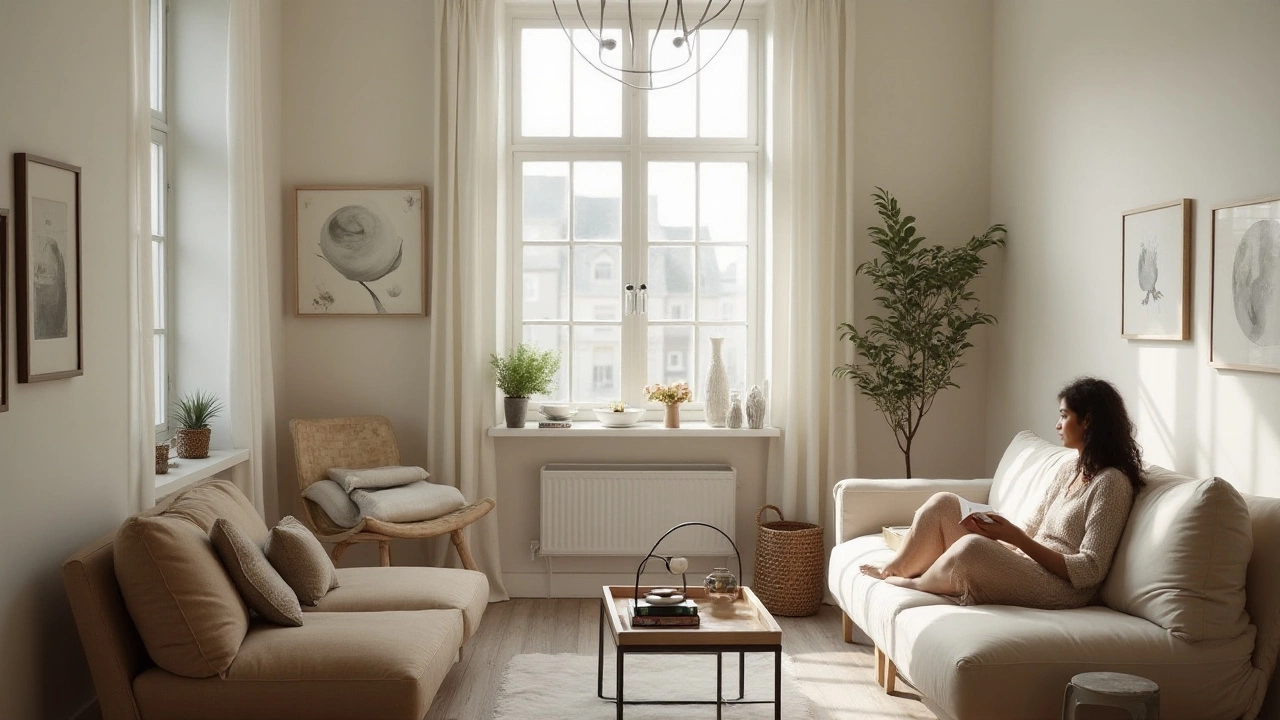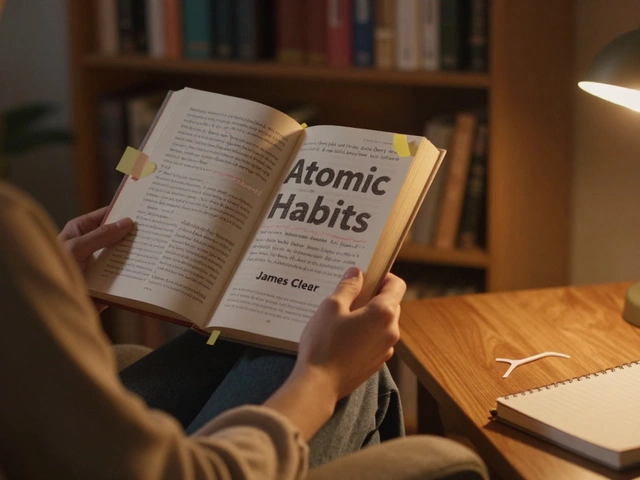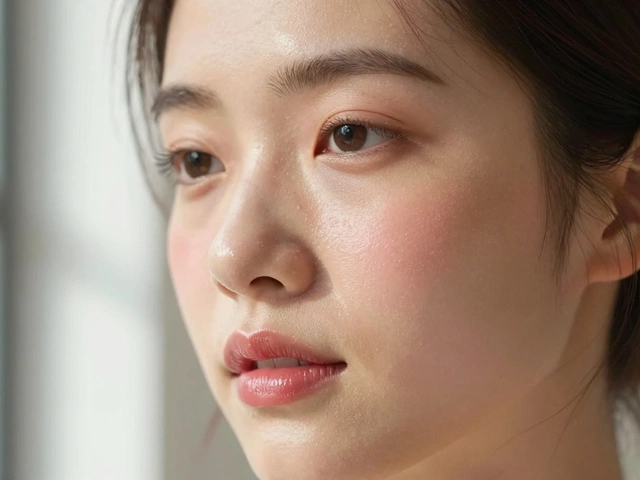The Golden Rule, an age-old adage, whispers guidance we often overlook in our rush to navigate everyday chaos. But what if this simple principle could be the key to unlocking a minimalist lifestyle? By embracing the idea of treating others as we'd like to be treated, we pave the way for a life imbued with simplicity and intention.
In a world cluttered with excess, the Golden Rule serves as a gentle reminder to reassess our values, urging us to focus on what truly matters. It bridges the gap between empathy and minimalism, suggesting that by being kind to ourselves and others, we can strip away the unnecessary and make room for peace and clarity. This is more than just a moral guideline; it's a blueprint for a fulfilling way of living.
- Exploring the Essence of the Golden Rule
- Connecting Minimalism and Empathy
- Practical Applications in Daily Life
- Mindfulness as a Minimalist Tool
- Letting Go of Excess Through Kindness
- Benefits of a Golden Rule Lifestyle
Exploring the Essence of the Golden Rule
The Golden Rule is a principle that transcends cultures and centuries, yet in its simplicity lies a depth that many of us gloss over in our busy lives. At its heart, it urges us to treat others as we would wish to be treated. This guiding light is found in the teachings of nearly every major religion, from Christianity where it is taught as "Do unto others as you would have them do unto you," to Confucianism's "Do not impose on others what you do not wish for yourself." This moral backbone has stood the test of time not because it is complex, but because it is profoundly straightforward.
Applying this rule into our everyday interactions can be transformative. Imagine a scenario where every action is weighed against this simple question: How would I feel if this were done to me? This introspection is at the core of the Golden Rule's power. It encourages us to move beyond a self-centered view of the world, fostering a sense of empathy and shared humanity. Studies have shown that when people feel heard and valued, they respond with increased generosity and kindness, creating a ripple effect that can change communities. In fact, research from the University of Wisconsin-Madison highlights that empathy can significantly enhance social relationships and personal satisfaction.
The Golden Rule also aligns seamlessly with the principles of minimalism. By acting with empathy, we begin to seek quality over quantity not just in our relationships, but in the physical spaces around us. When we acknowledge that our possessions can exert just as much influence on our lives as our actions towards others, we see the minimalist path as a journey towards mindful consumption. This approach is not about sacrifice, but rather about curating our lives around what truly matters — meaningful connections and experiences.
Many have noted how the application of the Golden Rule can ease not only personal stress but also societal tensions. As Albert Schweitzer noted, "The first step in the evolution of ethics is a sense of solidarity with other human beings." Such a perspective invites us to consider others within our lifestyle choices, pushing us towards sustainability and ethical consumption, common hallmarks of minimalist living. We see how acting in the interest of others often mirrors acting in our own best interest, a feedback loop that nurtures a harmonious existence.
Moreover, a life guided by the Golden Rule and the essence of minimalism can foster a sense of gratitude. Noticing the needs of others highlights our own abundance, leading us to appreciate what we often take for granted. Gratitude, it turns out, enriches our lives just like practicing the Golden Rule does — it creates positive cycles of giving and receiving that enhance our well-being and strengthen our community bonds. A fascinating study published in Psychological Science suggests that gratitude can prompt people to tend to the needs of others, which in turn makes them feel happier and more fulfilled.
"The best way to find yourself is to lose yourself in the service of others," said Mahatma Gandhi, capturing the transformative power of service and empathy encapsulated by the Golden Rule. This age-old advice doesn't just benefit those around us, it enriches our own lives by forging meaningful connections and cultivating a mindful approach to living.
Connecting Minimalism and Empathy
At first glance, minimalism and empathy might seem unrelated. Yet, dig a little deeper, and you'll find they complement each other beautifully, creating pathways to a more intentional and fulfilling life. Minimalism encourages us to focus on what truly matters, often leading us to re-evaluate our interactions with people and the environment. Through this lens, minimalism becomes not just about your space or belongings but a mindset that dictates your internal and external worlds. When you apply the Golden Rule within minimalism, it nudges you to act with empathy, validating not just your own experiences but those of the people around you.
Empathy in a minimalist lifestyle involves shedding excess both physically and emotionally, allowing you to better connect with others' feelings and perspectives. As you declutter your home, you might find you're also decluttering your heart and mind, liberating emotional space previously occupied by comparison, judgment, or the need for more. This can lead to more profound and genuine connections with others. It's about cultivating a more profound sense of presence in each moment, which in essence is minimalism practiced through empathy. This synergy invites us to consider how our interactions and choices ripple out to impact our community and the planet.
Adopting minimalism enhances compassionate living, fostering a simplistic approach to human relationships. With fewer material distractions, you can interpret the nuances of everyday conversations and look deeper into the human emotions behind them. In today's world, where technology often acts as a barrier to authentic interaction, choosing this path can reconnect you with your natural ability to empathize. The act of minimalism is more than just physical; it's about valuing experiences and interactions over material accumulation. Such a shift inevitably leads to a lifestyle characterized by profound empathy.
In the words of Marie Kondo, "The best way to choose what to keep and what to throw away is to take each item in one's hand and ask: 'Does this spark joy?'" By applying this approach beyond physical items to daily interactions and commitments, we prioritize what truly sparks joy — genuine interactions and relationships. This reflection is not only a personal journey but one that transforms our social engagements, helping us see the importance of empathy in everyday actions.
When we immerse ourselves in both minimalism and empathy, we're encouraged to engage with our surroundings and the people within them with greater awareness. You start questioning the ethical implications of your buying choices, considering the impact on others and the environment. Simplifying your life through minimalism not only means you are likely to need and consume less but also prioritize ethical consumption. This aspect of minimalist living aligns seamlessly with being empathetic, as it shows consideration and understanding towards global challenges and the impact of one's lifestyle choices. Thus, moving towards minimalism with the Golden Rule as a guiding principle creates a positive ripple effect that benefits not just the individual but society at large.
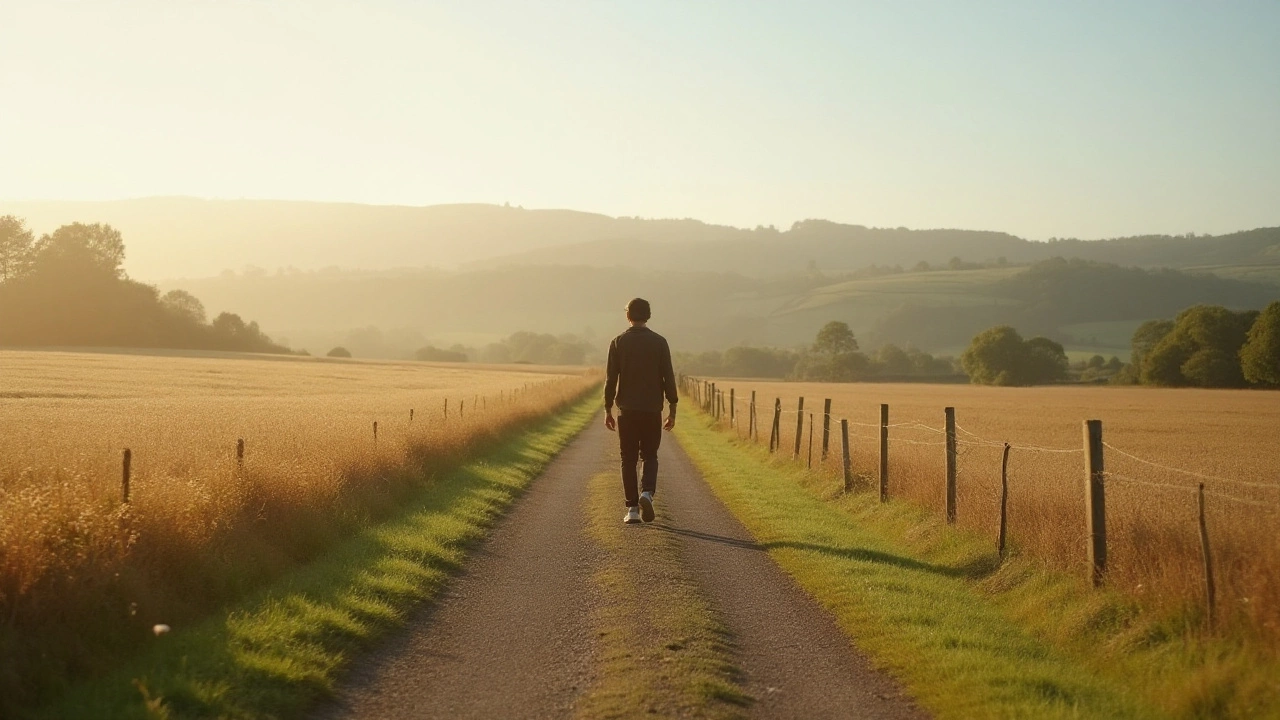
Practical Applications in Daily Life
Bringing the Golden Rule into everyday life offers more than just moral high ground; it's a gateway to personal fulfillment and a minimalist lifestyle. Centuries of wisdom echo the importance of empathy, yet implementing it daily requires intentionality. Start at home by decluttering spaces with the perspective of creating an environment you'd enjoy if stepping into your own abode as a guest. This perspective reshapes how you curate your surroundings, ensuring each item serves a purpose or brings joy, resonating with the minimalist philosophy.
Consider relationships next. Applying the Golden Rule here means fostering communication reflective of how you'd wish to be addressed. Listening becomes an active rather than passive task. Practicing mindful listening, which invites putting down distractions and genuinely focusing on what others say, not only strengthens bonds but aligns with the simple living ethic. Simple living doesn't just apply to possessions; it's a full-life approach that prioritizes quality interactions over a multitude of noisy encounters.
In the workplace, this rule births a culture of mutual respect and understanding. Imagine the shift if every colleague felt valued as you'd like to feel. This doesn't demand dramatic change. Small acts can make significant differences, like sharing credit for team successes or acknowledging efforts in public forums. The workspace, thus, evolves into an engine for productivity driven by respect, significantly reducing stress—a major clutter in mental spaces.
Beyond interpersonal dynamics, the Golden Rule extends to consumer habits. When shopping, assess whether you purchase items produced ethically, considering the labor and environmental impact, as you'd like your efforts honored if roles were reversed. This mindful consumption aligns perfectly with minimalism, reducing excess and fostering a world where personal and planetary well-being coexists harmoniously. Here, each purchase becomes an act of respect for the Earth and its people.
"Treat the Earth well. It was not given to you by your parents, it was loaned to you by your children." - Ancient Proverb
Furthermore, applying the rule to self-care isn't about indulgence but balance. Dedicate time to activities nourishing the soul, just as you'd offer comfort and support to a loved one. By ensuring physical and emotional self-care, you maintain energy and positive outlooks, essential in living minimally because it reinforces that minimalism is about enriching life quality, not simply reducing possessions.
Embedding the Golden Rule into technology use points toward mindful engagement. Consider the information shared online—how would you feel receiving this content? This reflection cultivates a digital life void of unnecessary noise, aligning with minimalism's call for clarity and intention. By curating digital inputs thoughtfully, one mirrors the act of decluttering physical spaces.
Lastly, this rule can revolutionize community involvement. Volunteering, participating in local events, or simply helping a neighbor unasked mirrors the treatment you'd appreciate, nurturing a support network and sense of belonging. Community, when nurtured, encourages shared responsibility for the area you're a part of, much like maintaining a clean, orderly home within a minimalistic lifestyle.
Mindfulness as a Minimalist Tool
Mindfulness, the art of being present in the moment, acts as a powerful ally in the minimalist lifestyle. When we engage fully with our surroundings and thoughts, we uncover the beauty in simplicity. Practicing mindfulness encourages us to focus on the tasks at hand without the distractions of the past or the anxieties of the future. In doing so, we learn to appreciate the small things and find contentment in what we already have. Mindfulness enables us to de-clutter not just our physical spaces but also our mental landscapes. By clearing away the noise, we're better positioned to live intentionally and enjoy a life of purpose and minimal stress.
Incorporating mindfulness into daily routines does not demand a dramatic overhaul of one’s life. It’s about taking small, deliberate steps towards being present. This can be as straightforward as setting aside a few minutes each day for meditation or taking a moment to savor a cup of tea without distractions. These practices help cultivate awareness, enabling us to make thoughtful choices about the objects and commitments we allow into our lives. When we're mindful, we become more attuned to our genuine needs versus wants, fostering an authentic connection with our surroundings and promoting simplicity.
Research has shown that mindfulness practices can significantly reduce stress, improve focus, and enhance emotional regulation. By integrating mindfulness into a minimalist approach, we not only diminish physical clutter but also nurture a sense of inner peace. A study published in the journal *Psychosomatic Medicine* found that regular mindfulness exercises can alter brain structures associated with attention and emotional regulation, demonstrating tangible benefits beyond mere relaxation. As we apply these principles to our homes and lifestyles, we naturally gravitate towards environments that reflect our values and passions without superfluous distractions.
"The present moment is the only time over which we have dominion." - Thich Nhat Hanh
The journey towards a minimalistic lifestyle thrives on the foundational practice of mindfulness, guiding us through decisions with clarity and compassion. It's like shining a light on what truly matters amid life's chaos, allowing us to let go of the unnecessary. This mindful approach fosters gratitude and sharpens our ability to prioritize, ensuring we live in harmony with our values and goals. When combined with the Golden Rule, mindfulness brings out the best in both ourselves and our surroundings, making room for genuine connections and a simpler, more satisfying existence.
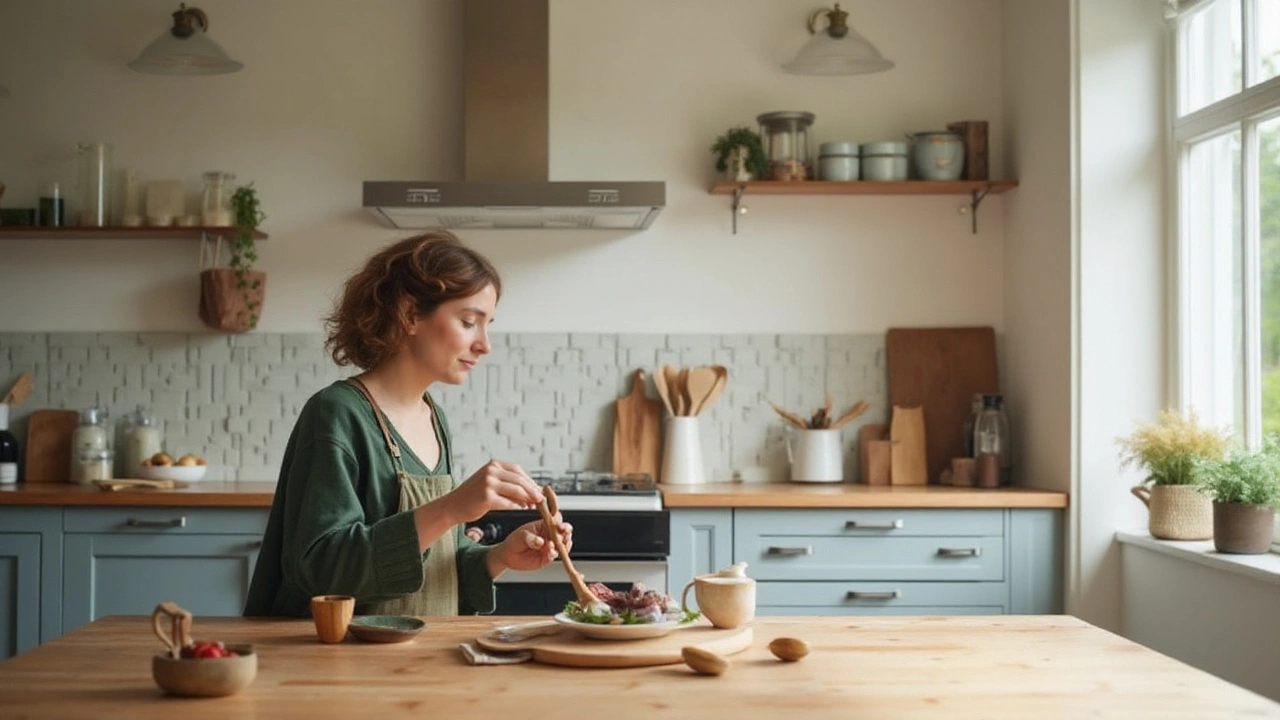
Letting Go of Excess Through Kindness
Releasing excess isn't only about purging physical items; it's an emotional and spiritual unburdening enabled by kindness. When we talk about letting go, it applies to more than closets and garages—it signifies a thoughtful clearing of mental and emotional clutter. Picture a universe where simplicity leads to genuine happiness; this is the promise of minimalism. Being kind to oneself during this process is crucial. As you evaluate possessions, ask if they bring joy or serve a real purpose. It's in these reflective moments that we practice kindness, not just to our future selves, but also to the items we choose to part with, allowing them new life in someone else's hands. This mindful approach harmonizes with the essence of the golden rule, helping us treat our space and our minds with the same respect we extend to others.
"The simplest things are often the truest." – Richard Bach
The process of letting go is as symbolic as it is practical. We often underestimate how much our possessions weigh on our well-being until we feel the lightness of their absence. Herein lies the concept: by gifting items we no longer need, we are practicing kindness both to ourselves and the recipients. Distributing belongings to those in need turns what could be a distressing act of deprivation into one of generosity and empowerment. The trick is involving mindfulness as a guiding principle. Consciously deciding where each possession goes ensures they find purpose, aligning our actions with the minimalist mantra of intentional living.
Notably, the mental freedom granted by shedding surplus is profound. Several studies illustrate a correlation between material excess and heightened stress levels, yet conversely, reducing possessions has shown to alleviate mental strain significantly. Research from Princeton University discovered that excessive stimuli in our environment can impede memory and focus, suggesting that clarity emerges when we simplify. By giving our belongings a second life, we foster a community spirit, embodying the minimalism ethos while enriching lives beyond our own. This act of kindness echoes back, reinforcing our intrinsic value and interconnectedness.
Beyond just kindness to others, being gentle with ourselves during this process is vital. It's natural for attachments to form around items we own, making the act of detachment potentially daunting. Here, patience becomes key. Allow yourself the kindness of time, knowing that this journey isn't rushed, but rather an evolution towards a life where less truly becomes more. Letting go, therefore, transforms into an ongoing practice, a lesson in humility, acceptance, and ultimately, joy.
Benefits of a Golden Rule Lifestyle
Embracing the Golden Rule is more than a recipe for good conduct; it serves as a transformative guideline that has far-reaching benefits in our pursuit of a minimalist lifestyle. The very heart of minimalism is stripping away excess to reveal a life of clarity and purpose. By living in accordance with the notion of treating others as we wish to be treated, we cultivate an atmosphere of respect and consideration, directly influencing our mental and emotional landscapes. Studies indicate that altruism, a core element of this principle, boosts emotional well-being, reduces stress, and cultivates a sense of purpose. Imagine waking up each day knowing your actions resonate with harmony and shared humanity, creating a ripple of positivity around you.
This lifestyle choice also fosters deeper connections. When you view the world through the lens of the Golden Rule, relationships shift from transactional to meaningful, because you're genuinely engaging with others in an authentic way. A reduced focus on material possessions places emphasis on experiences and interactions, which is a cornerstone of minimalism. Dr. Martin Luther King Jr. once stated,
"Life's most persistent and urgent question is, 'What are you doing for others?'"Contemplating this question can reinforce minimalistic habits by encouraging mindfulness in how we engage with the world.
Interestingly, there is evidence suggesting people living in alignment with the Golden Rule enjoy better physical health. Acts of kindness activate the pleasure centers of the brain, releasing feel-good chemicals like serotonin and dopamine. These neurological changes contribute to healthier lifestyles, promoting longevity and physical well-being. Imagine the compounded effects as these individual acts coalesce into a cultural ethos. By prioritizing kindness and empathy, a ripple effect is created that encourages others to engage in similar behaviors, fostering community and connection.
A simple living approach that incorporates the Golden Rule can also lead to financial advantages. By reducing the value we place on material belongings and increasing our focus on genuine interactions and authentic living, we naturally curb unnecessary expenditures. Consider the potential savings when desires are redirected from buying more to sharing more. A clear example of this is the steady rise in sharing economies, where collaboration over ownership takes precedence. Such strategies not only benefit personal balance sheets but also support more sustainable environmental practices, which aligns with the ethics of minimalism.
Finally, implementing the Golden Rule in a minimalist lifestyle equips us with a powerful tool for personal growth. As we simplify our lives to reflect our core values and align more closely with ethical living, we experience a profound sense of inner peace. Interestingly, this inward focus encourages us to explore personal interests and passions without the burden of excessive consumerist culture. When life is simplified, creativity, purpose, and direction come to the forefront, enabling us to live not only simply, but also meaningfully.
